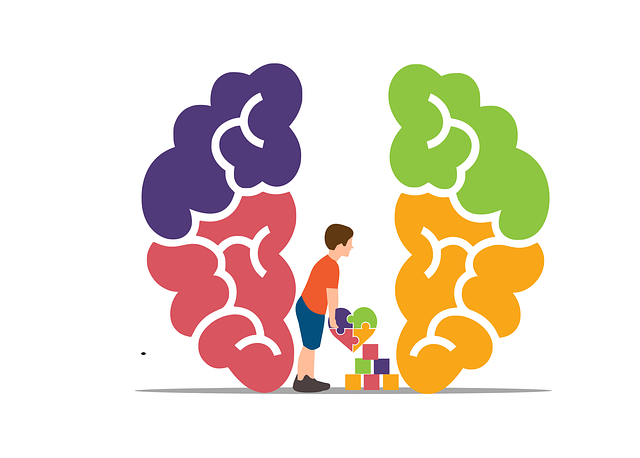Depression, a global concern, affects daily life with symptoms like persistent sadness, sleep disturbances, and thoughts of suicide. The Longmont Mandarin Chinese Speaking Therapy program offers specialized therapy in Mandarin Chinese, addressing cultural barriers and enhancing mental health support for the Chinese-speaking community in Longmont. This holistic approach combines evidence-based practices like mood management, mindfulness meditation, and cognitive behavioral techniques (CBT) to improve coping strategies, promote positive thinking, and build resilience. By integrating lifestyle modifications, public awareness campaigns, and strong social connections, this initiative aims to prevent depression, enhance well-being, and foster cultural awareness within the Longmont community.
Depression is a prevalent yet profound challenge affecting individuals across cultures. In this comprehensive guide, we explore diverse strategies for prevention, focusing on holistic well-being. From understanding the nuances of depression and its signs to exploring innovative approaches like Longmont Mandarin Chinese Speaking Therapy, we delve into effective methods. Additionally, we discuss lifestyle modifications, cognitive behavioral techniques, and the power of social connections, offering valuable insights tailored to modern lives.
- Understanding Depression: Recognizing the Signs and Symptoms
- Longmont Mandarin Chinese Speaking Therapy: A Cultural Approach to Mental Health Support
- Lifestyle Modifications for Enhanced Well-being
- Cognitive Behavioral Techniques: Empowering Your Mind
- Building a Supportive Network: Social Connections and Depression Prevention
Understanding Depression: Recognizing the Signs and Symptoms

Depression is a complex mental health condition that affects millions worldwide. Recognizing its signs and symptoms is the first step towards prevention. Individuals often experience a persistent feeling of sadness, loss of interest in activities they once enjoyed, changes in appetite or sleep patterns, fatigue, difficulty concentrating, feelings of worthlessness, and recurrent thoughts of death or suicide. These symptoms can vary in intensity and duration but significantly impact daily functioning.
In Longmont, Mandarin Chinese-speaking therapy offers a unique approach to addressing depression. Therapists skilled in this language can create a safe and culturally sensitive environment, making it easier for individuals to open up and express their feelings. By integrating evidence-based practices such as mood management techniques, burnout prevention strategies, and mindfulness meditation, therapists guide clients towards improved mental well-being. These interventions aim to enhance coping mechanisms, promote positive thinking, and foster resilience in managing depressive episodes effectively.
Longmont Mandarin Chinese Speaking Therapy: A Cultural Approach to Mental Health Support

In Longmont, a unique approach to mental health support is gaining traction within the Chinese-speaking community. The Longmont Mandarin Chinese Speaking Therapy program offers a cultural touchstone for individuals dealing with depression and other mental health challenges. This initiative leverages the power of language and cultural understanding to bridge the gap between healthcare providers and patients from diverse backgrounds. By providing therapy in Mandarin, the program ensures that cultural barriers are broken down, fostering a sense of comfort and trust among participants.
The effectiveness of this approach lies in its ability to integrate coping skills development tailored to the specific needs and experiences of Chinese-speaking individuals. Through community outreach program implementation and healthcare provider cultural competency training, the initiative aims to enhance access to mental health services. This holistic strategy not only supports individual well-being but also promotes cultural awareness and understanding within the broader Longmont community.
Lifestyle Modifications for Enhanced Well-being

In the quest to prevent depression, lifestyle modifications play a pivotal role in enhancing overall well-being. Encouraging individuals to embrace self-care practices such as regular exercise, balanced nutrition, and adequate sleep can significantly boost mood and resilience. Incorporating activities that foster emotional intelligence, like mindfulness meditation or Longmont Mandarin Chinese speaking therapy, can provide effective coping mechanisms. These strategies not only promote mental health but also cultivate a sense of balance and inner peace.
Furthermore, public awareness campaigns development centered around recognizing depression symptoms and available support systems is crucial. Educating communities about the importance of seeking professional help early on can prevent depressive episodes from escalating. By combining self-care initiatives with widespread knowledge dissemination, individuals equipped with emotional intelligence tools can navigate life’s challenges more effectively, thereby reducing the risk of developing depression.
Cognitive Behavioral Techniques: Empowering Your Mind

Cognitive Behavioral Techniques (CBT) offer a powerful approach to depression prevention by empowering individuals to take control of their thoughts and emotions. This evidence-based method focuses on identifying and challenging negative thought patterns, replacing them with more realistic and positive ones. Longmont Mandarin Chinese speaking therapy incorporates CBT techniques, enabling clients to develop coping strategies tailored to their unique needs. By learning to recognize and modify distorted thinking, individuals can improve their emotional well-being promotion techniques and enhance mental wellness.
The process involves a collaborative partnership between therapist and client, where they work together to set achievable goals. Through structured exercises and mindfulness practices, CBT helps individuals gain a deeper understanding of their thoughts and behaviors. This self-awareness is pivotal in fostering positive thinking and building resilience against depressive episodes. The integration of these techniques into daily life can lead to lasting improvements in mental health and overall quality of life.
Building a Supportive Network: Social Connections and Depression Prevention

Building strong social connections is a key component of depression prevention. Humans are inherently social beings, and having a supportive network can significantly contribute to our overall well-being. Longmont Mandarin Chinese Speaking Therapy provides a unique opportunity for individuals to connect with others who share similar cultural backgrounds while also fostering a sense of belonging. Engaging in regular social activities, whether it’s joining community groups, participating in hobbies, or simply reaching out to friends and family, can help combat feelings of isolation and loneliness, which are risk factors for depression.
A strong support network offers more than just companionship; it provides a safe space for individuals to express their emotions, seek advice, and receive encouragement. This emotional support is vital for building resilience, which is the ability to adapt and bounce back from challenging situations. In the context of burnout prevention strategies for healthcare providers, maintaining robust social connections can help mitigate stress and promote self-care routine development for better mental health. By nurturing these relationships, individuals can enhance their coping mechanisms and reduce the likelihood of developing depressive symptoms.
In navigating the complex landscape of depression prevention, adopting a multifaceted approach is key. From understanding the nuances of this condition through recognizing its signs and symptoms, to leveraging unique resources like Longmont Mandarin Chinese Speaking Therapy for culturally sensitive support, each strategy plays a vital role. Integrating lifestyle modifications, cognitive behavioral techniques, and fostering strong social connections can create an empowering symphony of well-being. By combining these methods, individuals can transform their mental health journey, finding resilience and hope in the face of adversity.














